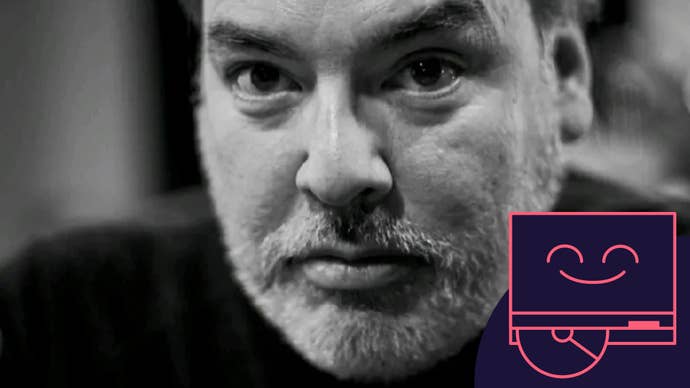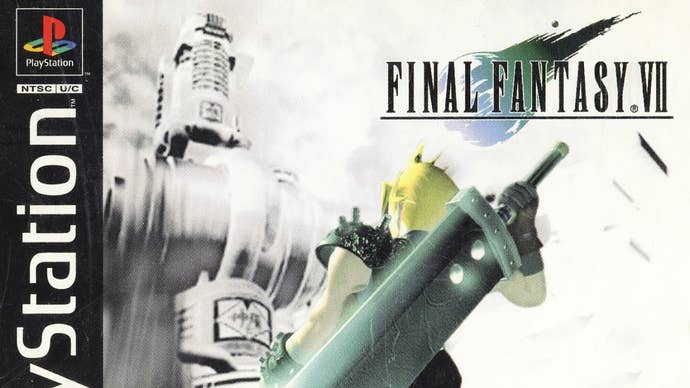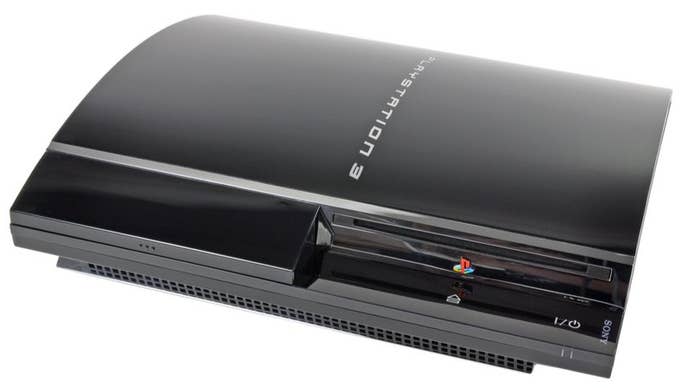“We’ll all make this stuff up as we go along together.”
What’s your first memory of PlayStation?
You were already working at Sony at the time, what was your reaction to it?

Was the idea of a games console taken seriously?
I was attached to the office of the chairman, Akio Morita, the founder of Sony.
I was his assistant, speech writer, ghost writer, interlocutor when I had to be.

And we were watching all that from afar, so to speak.
But within Sony, I think a lot of the leadership at the time didn’t take it seriously.
They thought: ‘Oh my god, Sega and Nintendo own this thing [the console industry].

But [then-Sony president Norio] Ohga-san was a believer.
A lot of people thought we were taking a risk.
You moved over to the PlayStation division specifically pretty soon after - how did that happen?

Layden:I joined PlayStation specifically in ‘96 when they were a year into it.
They’d already launched in North America and in Japan.
We’d worked together on the acquisition of Columbia Pictures, so I was kind of a known quantity.

After the chairman’s death, Terry asked me ‘what are you going to do now?
Why don’t you come and join us in this new company,Sony Computer Entertainment?’
I said, ‘Okay, that’s great.
What would I do there?’
He said: ‘You’d be a video game producer’.
And Terry was very upfront.
He said, ‘It’s all right.
None of us do either.
This is the perfect time to get in.
We’ll all make this stuff up as we go along together.’
What was it like actually working inside PlayStation back then?
Layden:Talk about baptism by fire.
Because that’s next week’.
I said, ‘Do you want me to go to this E3?’
He said yes I should go.
I say, before finding a colleague.
‘What the hell is E3?’
You either catch on really quick, or you get rolled over by the leviathan.
You just have to run faster than the slowest bear, as they say.
PlayStation faced established competition - Nintendo, Sega were already giants of the console world.
How did Sony decide it was going to take them on?
And we were just about ready.
So there was Ken, proverbially standing at the altar with his optical disc drive in his hands.
But they said ‘let’s be honest, we sell electronics’.
Sony knew that without entertainment DNA, we would not be successful.
So the initial stage was made a joint venture between Sony Electronics and Sony Music.
All the hardware engineers were at their desks wearing their Sony vests, working on their engineering thing.
They’d all stand up.
They’d all leave.
When that announcement was made, that was really the ‘oh my god’ moment.
‘Sony’s really serious about this now.’
What other big decisions were made early on, that helped get PlayStation a foothold?
‘If it catches fire, call me on Thursday.
I can refill you by Tuesday.’
The momentum really changed the business model of that.
Sony deliberately never had more than maybe 22 percent of [first-party] software share.
On the Sega platforms and Nintendo, first-party had 80, 85, 90 percent of the software market.
It’s for third parties to come make a business.
And so you got games like PaRappa the Rapper.
You got games likeSingStar, Ico andShadow of the Colossus.
Who’s going to make those games?
We weren’t just trapped into three genres and trying to fight for market share from each other.
So I think those are the important decisions taken early on.
And a lot of those decisions were taken super early.
Aside from the hardware and games, PlayStation had some memorable marketing too.
If you look at the Japanese TV advertising, it was like nothing you’d ever seen in gaming.
Gaming advertising had been really straightforward.
‘Here’s the character, here’s the action scene.’
It was the same in England too.
WipEout here had a memorable advert that caused some controversy, back in the day.
And then the music - I thought that was genius too.
But it helped that Japan hadn’t heard of the Chemical Brothers or Crystal Method or Prodigy.
WipEout was like a music introduction vehicle.
You’ve got your vodka Red Bull in one hand, and you’re playing WipEout with the other.
‘Oh, Tomb Raider.
Oh, do you play games?
That’s cool.’
Even if playing it at that point was difficult.
Layden:Let’s be honest, the original WipEout is rock hard.
And honestly, you know, we’d do that too, come home from the pub and play.
you’re free to’t play it, but you laugh your ass off.
Everyone can’t take the first corner.
With the sequel, we did make the handling a bit more forgiving.
Specifically for people back from the pub?
Layden:Not specifically but it was definitely a benefit to them.
What was it like being part of those early conversations around what consoles could do?
Of course they had early access, but they burrowed deep.
That’s all the tech they need to know about.
It was a bit of a headache, and there was a huge cost involved.
Yeah, and that comes down to us moving to more commoditised silicon.
But that didn’t happen.
What was it like at Sony during the PS3 era?
Layden:PS3 was Sony’s Icarus moment.
We had PS1, PS2… and now we’re building a supercomputer!
And we’re going to put Linux on it!
And we’re going to do all these sorts of things!
you’re able to manage the cost better.
you might argue with vendors, get better deals instead of building your own thing.
We also learned that the center of the machine has to be gaming.
It’s not about whether I can stream movies or play music.
Can I order a pizza while I’m watching TV and play?
No, just make it a game machine.
Just make it the best game machine of all time.
I think that’s what really made the difference.
When PS4 came out, it set us against what Xbox was trying to do.
And in a moment of inspiration, they came up with that.
And it was… it was devastating in its simplicity.
PS3 was a clarion call to everybody to get back to our first principle.
Over time, we had the PS3 fat, then the PS3 not-so-fat, then the really tiny one.
That’s all we did here.
The first couple of years, though, that was pretty grim.
We learned a lot and we were able to put it into practice.
We had to start doing these things like we used to.
It was super simplistic, and the graphics, looking at it now you go, ‘Oh my God.
How pixelated is that?’
That will always be my first love, because that’s the first game I worked on.
Later on, I love the stuff we did with things like PaRappa.
Vib-Ribbon, from the same studio, I loved.
Also Biohazard, or rather, Resident Evil.
When that came out, that was a shocker.
We weren’t just going to be about JRPGs, or another fighting game or some racing game.
We worked very closely with Capcom to get the right promotion around Resident Evil in Japan.
And then Metal Gear came out with stealth action - what is that?
Kojima made it happen, and that created another new genre.
It’s about growing those pies.
It’s making more categories, getting more people into gaming.
Not just simply to grow the market, but also to give it longevity and stability as a medium.
Were you ever jealous of a game on a rival platform?
Layden:The one time I really felt jealous…
I’m going back to my time in Tokyo on PS1.
My job was to bring Western titles to Japan.
And in your local parlance, that’s like bringing coals to Newcastle, right?
I wanted to get Tomb Raider for the Japanese market.
I wanted it to be on PlayStation.
We talked it through.
They talked it through.
Bada bing, bada boom… they signed to bring it out on Sega Saturn.Sega?
And yeah, that always felt… What could I have done to have actually gotten it?
But I came that close.
Finally, is there one classic franchise or game that you’d like PlayStation to go back to?
Layden:This is just a personal preference.
I would love another whack at MediEvil.